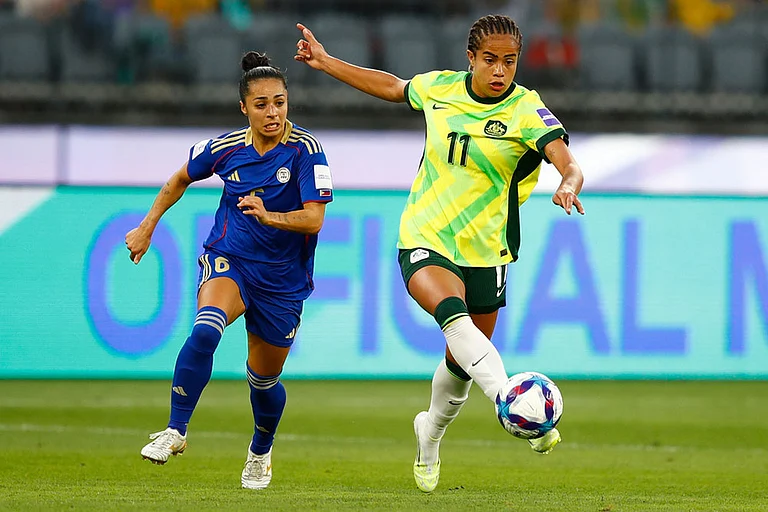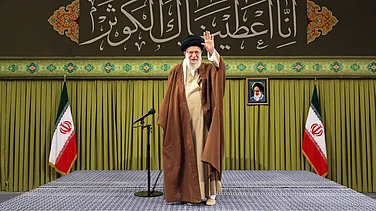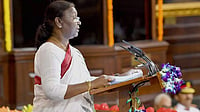The Indian Prime Minister’s recently-concluded state visit to the United States, carried out with much local fanfare and global media coverage from multiple angles, is being hailed as an important new chapter in India-US relations. What has been particularly intriguing in public commentary on this subject is the political rhetoric of friendship. The US Ambassador to India was quoted as saying that it is not just a relationship between the two countries but a genuine, deep friendship that is a culmination of decades of work. The Indian Ministry of External Affairs also described the bilateral relationship as a friendship.
The world’s oldest and largest democracies share key areas of cooperation, such as trade and technology, health and human rights, sustainable development, and security. Indeed, the membership of both countries in the G-20 forum for global economic cooperation, multilateral platforms and security dialogue partnerships such as ASEAN, and Quad, which focus on possibilities in the Indo-Pacific, and the recent 2023 Initiative on Critical and Emerging Technology (iCET), a bilateral platform to foster technological development and innovation, along with the continuing need for democracies to deliver on non-traditional forms of security such as food, health, and freedom from gender-based and other forms of violence against vulnerable populations, point to a partnership that can be expected to grow in instrumental importance over the coming decades.
Alexander Kersten, Deputy Director and Fellow of the Renewing American Innovation Project at the Center for Strategic and International Studies (CSIS), whose work focuses on technology, inclusive innovation policy, and regional innovation hubs, has written compellingly, and without overtones of cultural imperialism, on the emerging India-US innovation partnership in connection with the launch of iCET. Kersten acknowledges India’s innovation ecosystem to be one of the largest and fastest-growing in the world as well as India’s role in the security architecture and as a strategic counterbalance to China in the Indo-Pacific. He also mentions “friendshoring” — sourcing from geopolitical allies with shared interests on the lines of a trade bloc— emphasising the potential of this alliance in a multipolar world.
Earlier this year, I organised a distinguished lecture by former Foreign Secretary and Ambassador to the United States Nirupama Rao for students I taught at the University of Michigan. It was in partnership with the Hummingbird Global Leaders Forum, a community initiative I founded as a follow-up to my writers’ circle that builds upon my research, global policy engagements, and teaching experience in leadership, to generate policy dialogues on topics such as democracy, education, health, entrepreneurship, security, and global cooperation. Rao highlighted the long history of cooperation more than conflict between the two nations, the people-to-people connections cemented by contributions of the Indian diaspora. Yes, there is no doubt that India and the United States have been, and can be, allies. But are we friends?
Speaking of a different set of bilateral ties, India launched Operation Dost, a search and rescue initiative to aid Turkey during this year’s earthquake. Along with network-independent tracking systems, the Indian Air Force (IAF) is said to have sent several C-17s —a strategic and tactical airlifter designed for the US Airforce decades ago— with disaster response squads, drones and drilling machines, a mobile hospital and medical equipment, including heartbeat detecting radars, cardiac monitors, and ventilators. The importance of the large-scale humanitarian effort notwithstanding, even that reportage reiterated the idea of friendship. From the published statement of the Turkish Ambassador to India Firat Sunel saying a friend in need is a friend indeed (“Dost kara günde belli olur”), those like myself learned that the Hindi-Urdu meaning of dost, a common word in our vocabulary and the name given to the international operation, is the same in Turkish: friend. Soon after, however, there were reports of rising tensions due to Turkey’s disagreement with aspects of Indian domestic and foreign policy, again begging the question: what is friendship between states?
My previous article in Outlook quoted from a scholarly essay on feminist theory and cultural imperialism that posits friendship as the deceptively simple solution to the vexing question of how to be more than just an instrumental ally to those whose histories and lived experiences are different from our own. Yet if this is hard even on an individual level, how much harder is it for nations? What might it take for friendship to serve as a viable framework in global politics? I have been exploring this question with friends and colleagues over the past months, discovering to my delight a new phrase in this evanescent literature: “friendship scholars”.
A small yet powerful body of literature on friendship exists in cultural studies, such as Brown Pembroke Center Director Leela Gandhi’s brilliant work on postcolonial poetics, ethics, and the politics of friendship. But a theoretical and empirical study of friendship is less common in international relations, where there is more discussion on security and strategic partnerships between nations and formal treaties that facilitate transnational cooperation. The enemy/friend binary has also been considered a central concept in IR, and with it an understanding of harmonious relations between those who are not enemies. But a non-enemy is not necessarily a friend; and while the idea of a working harmony is important for a security community —a group of nations which intentionally develop shared goals such as defense and prosperity, bilateral consultation and cooperation, and coordination of policy and diplomacy— is such harmony an adequate or even necessary component of international friendship relations?
In looking up existing literature on friendship, I first came across Simon Keller’s work, which is quite interesting in its attack on the idea of friendship in international relations, or rather an attack on the equating of a relationship between individual persons with those between nations. But others such as Felix Berenskoetter describe friendship as a real and meaningful relationship between states. Berenskoetter, who lectures in International Relations at SOAS London and is an expert on interstate security cooperation, differentiates friendship from strategic alliances and security communities while acknowledging that friendships often evolve from these and other prior partnerships, often (but not always) in integrated peace zones, such as the Anglo-American friendship within the transatlantic security community. Berenskoetter notes that equality or symmetry of power is not a precondition to international friendship but, as in the case of individual friendships, some reciprocity is required. One thinks of the US-Ukraine relationship where a powerful state responds with support when a smaller ally is threatened.
But reciprocity, at least in the sense of protecting and defending each other when needed, is true even for military alliances such as NATO as well as for signatories of peace treaties; and the distinction drawn by some scholars between strategic and normative friendships, with the former being more instrumental further blurs the line between friends and allies. The most compelling distinction, then, is perhaps provided by Lucile Eznack on the affective dimension of international friendship relations. Eznack, the author of Crises in the Atlantic Alliance: Affect and Relations among NATO Members, describes the affective bonds and special attachments between state-friends whose bilateral ties are strengthened by reciprocity, loyalty, empathy, respect, honouring commitments, shared values and projects, and defining moments of mutual support, taking it beyond its instrumental benefits.
While trust is useful to have in a working relationship even between allies, it is an inalienable aspect of friendship — especially when friends disagree. Since major disagreements can be a challenging aspect of friendships, what impact might dramatic interstate disagreements have? In ‘Emotional (Security) Communities’, Simon Koschut provides a fascinating account of crises resulting from perceived betrayal by a state-friend that violates key relational norms. Koschut, who has held the Chair of International Security Policy at Zeppelin University, Germany, and authored pioneering work on emotion culture in international relations, explains that efforts to mend the breach will, as in the case of insensitivity in individual friendships, require honest dialogue about the injustice in order to move forward, if not to save the friendship.
Sometimes, the crisis can be avoided through a reciprocal understanding of the other. The India-US disagreement over Russia is a case in point, given Russia’s historical friendship and support of India, including backing the latter’s bid for permanent membership in the UN Security Council (UNSC). India took an independent, non-aligned stand on Ukraine, disagreeing with Ukraine’s invasion as with NATO proliferation, using soft power instead. In their treatment of friends, and for good or for bad, India and the US may be more alike than either realises. Friendship holds fair space for criticism and the airing of grievances. That the Biden administration agreed to focus on other matters of bilateral cooperation allowed the relationship to not be derailed in entirety.
In other words, friendship as a framework in political and IR theory entails an innovative paradigm shift, a transformative vision. While historically powerful Western nations often have, in a continuation of colonial tactics, played India and its neighbours against each other, or assumed a unilateral right to lecture, friendship involves building more equal ties, care, and mutual understanding. Many of us hope that Indian and American leadership, their domestic challenges notwithstanding, can continue to achieve this, becoming that best word of all: friends.





















